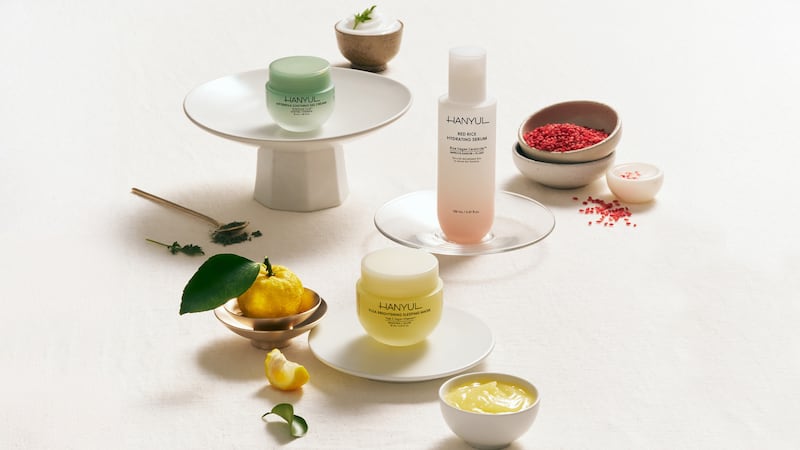Is the microbiota—the trillions of bacteria and yeast that live with the intestinal flora of your gastrointestinal system—on its way to becoming our best wellness ally?
Thanks to fairly recent research into gene sequencing, we now have a better understanding of this astonishing bacterial population living within our gut. According to André Burckel, a French scientist and pharmacist-biologist, the microbiota can “send messages to the brain, with an impact on neurotransmitters which then act on mood.”
We’re in a period of increase gut health awareness, but it can also be pretty overwhelming to know where to start to nurture your microbiome. Should you really be on a super-push for protein? Are probiotics the answer? Or prebiotics?
The signs of an unhappy gut range from bloating and lethargy to insomnia, reduced immunity, depression, and constipation. When your gut isn’t best pleased, it’s throwing the rest of your body off. So how can we optimize our microbiota? Below, three simple rules for having a healthy gut.
Focus on the right foods
Directly influencing mood, sleep, and both the locomotor (musculoskeletal) and circulatory systems, as well as the body’s defense system, the effects of microbiota extend far beyond the intestines and their impact on digestion. You have to take the utmost care of it to feel good and keep a healthy gut.
In his book The Burckel Diet, for Microbiota Health, Burckel recommends incorporating five key components into your daily diet. First, resistant starches like wheat, beans, or bananas to nourish the good intestinal bacteria. Secondly, beta-glucans, a type of soluble fiber that naturally occurs in things like oats and barley, and which increase the number of good bacteria, kills the bad, and lowers cholesterol levels at the same time.
Then, Burckel suggests fructans, which are a type of carbohydrate that naturally occurs in certain cereals, legumes, and fruit and vegetables like asparagus, chicory, and melon, all which help balance the microbiota. He also emphasizes the importance of fiber—like kale, figs, or almonds, which increases gut diversity and is used by your gut bacteria to create short-chain fatty acids—good for brain health and metabolism. Finally, polyphenols, found in plant foods like dates, tea, spices, and cocoa, which can act like a prebiotic and benefit gut bacteria, or can be converted by the gut bacteria into beneficial fatty acids.
Eat raw
It’s a fact: Our hectic, stressed lifestyles, combined with an industrialized diet and reliance on antibiotics, put the functioning of the microbiota to the test. We now know that intestinal dysbiosis can lead to autoimmune pathologies, degenerative diseases, and even depression…The good news? We can take preventative measures, and optimize the functioning of our microbiota with the help of dietary prebiotics—another unsung hero of gut health.
“There are nutrients and fibers found in fruits, vegetables, and fresh herbs [you can eat] raw! Or at least, cooked at less than 42°C (107°F), as heat destroys them,” explains Marie-Sophie L., a French chef who champions raw and plant-based cooking. In her book Raw Food, she provides a list of simple, “friendly” foods to incorporate into your diet on a daily basis: Nuts (like coconut, cashew, and macadamia), seeds (chia, hemp, and buckwheat), as well as vegetables in all their forms, as juices, smoothies, or soups. She also emphasizes apples, which, when eaten regularly, can help support liver health due to their fiber, antioxidants, and malic acid content.
Incorporate probiotics into your diet
And can you enrich your microbiota with probiotics? But it’s important to be considered and targeted according to your own flora and current issues. Dr. Valérie Leduc, a specialist in anti-aging medicine, is a great believer in microbiota DNA analysis. “This analysis, which should soon be available, will enable me to draw up prescriptions for probiotics and dietary supplements. dietary supplements much more targeted and personalized.” To be continued.
Until then, consider eating a wholesome, varied diet with naturally probiotic-rich foods. Think fermented foods, like pickles, or yogurts, kimchi, and kefir. “They are key for providing special probiotics to the diet,” nutritionist Cristina Barrous told Spanish Vogue.
“Growing evidence suggests that fermented foods change the metabolic activities in the gut, acquire new characteristics, and increase benefit in age-associated changes,” another recent study outlined. “A series of relevant benefits associated with fermented foods in healthy aging and longevity have been reported that includes preventing allergic reactions, gastrointestinal disorders, diabetes, cardiovascular disease, cancer, obesity, and improving metabolic function and neuroendocrine effects.”









